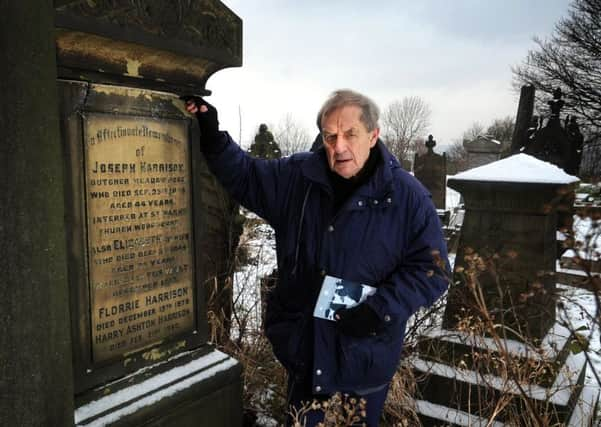Anthony Clavane: We should all applaud great Northern voices


Clearly, being a poor person in 19th Century France, or indeed in any country during any period in history, requires you to talk like the readers of this newspaper.
Accent snobbery is hardly a new thing. “I played the Drunken Porter in Macbeth,” wrote the great Tony Harrison in his magisterial poem Them & (uz). “Poetry’s the speech of kings. You’re one of those Shakespeare gives the comic bits to: prose!”
Advertisement
Hide AdAdvertisement
Hide AdHarrison, the son of a Leeds baker, grew up in the post-war era when bright, young, working-class Yorkshiremen and women were obliged to shed their accents in order to succeed in the arts. Or at least to get the non-comic roles in productions of Macbeth, Hamlet and King Lear.
During the upwardly-mobile 1960s, of course, gritty northerners were all the rage, albeit for a brief period of time. But social mobility has declined and the Old Etonians and Harovians are back in the saddle. You know who I mean – the Benedict Cumberbatches, Eddie Redmaynes and Dominic Wests.
So, I’m neither surprised that West has landed the role of the peasant Valjean in the new TV version of Les Mis nor shocked that the actor has had to flatten his vowels.
However I am surprised, nay shocked, to discover that West was actually born in Sheffield.
Advertisement
Hide AdAdvertisement
Hide AdI could, of course, be accused of subconscious accent snobbery given that there is no reason whatsoever why posh actors shouldn’t hail from the People’s Republic of South Yorkshire.
But the point is that when West went to drama school after Eton he was instructed to lose all remnants of his Yorkshire burr because, in his own words, “received pronunciation would get more jobs – and it’s true.”
Perhaps the Beeb should send its casting directors up to Bradford in May to see Lisa Holdsworth’s new play about Andrea Dunbar.
In 1980, the 19-year-old Dunbar became the youngest writer to have a show staged at the Royal Court. Two years later, the London theatre put on her masterpiece, Rita, Sue and Bob Too, which was subsequently made into a much-loved film. It is a brilliant portrait of two schoolgirls caught between an unsparingly tough childhood and a depressing future.
Advertisement
Hide AdAdvertisement
Hide AdThe Holdsworth play will be staged in a Bradford pub before going on a tour of towns like Doncaster and Oldham and will feature local actors speaking in their own voices.
Dunbar, who tragically died after suffering a brain haemorrhage at the age of 29, was a young, working-class female who, despite “making it” down south, kept her native Bradfordian accent.
My earliest television memory is hiding behind the sofa. Not when Doctor Who came on – but when Ena Sharples called Dennis Tanner a “great mard nelly” in Coronation Street and threatened to take him on “with me left hand”. Sharples and Dennis’ mum Elsie would often square up to each other in The Rovers, their acid-tongued put-downs being far scarier than the Daleks’ cry of “exterminate”.
Patricia Phoenix as Elsie and Violet Carson as Ena – just like Rita Tushingham in A Taste of Honey and Billie Whitelaw in Charlie Bubbles – played strong, complicated, northern women. Dunbar’s characters are in this tradition, often engaging in Tanner-Sharples type slanging matches that would make Danny Dyer blush. They have a hilarious sense of humour but are not simply there for comic relief.
Advertisement
Hide AdAdvertisement
Hide AdThese days, we seem to be going backwards. For every Jodie Whittaker there is a Maxine Peake being asked how she could possibly play an educated barrister in Silk. Olivia Cooke, born and brought up in Oldham, might have starred in Vanity Fair but she recently wondered: “If I’d stayed (in Britain) as a working class northern actress (would I) have had this career path? In America, my accent’s not a thing.” Before her stateside success, she added, casting directors would think: “If she sounds like that, make her Maid Number Two.”
Anyone daring to cast Violet Carson as a maid in a period drama would no doubt have felt the full force of her left hand.